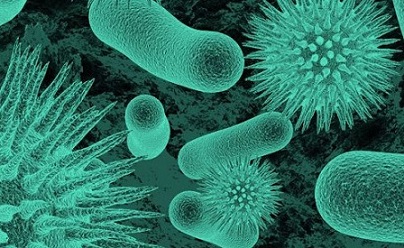Brazilian Study Review Finds That Probiotic Lactobacilli Has Therapeutic Potential In Treating COVID-19
Nikhil Prasad Fact checked by:Thailand Medical News Team May 01, 2024 11 months, 2 weeks, 3 days, 40 minutes ago
COVID-19 News: The COVID-19 pandemic has swept across the globe, presenting unprecedented challenges to public health systems and medical communities worldwide. As researchers strive to uncover effective strategies to combat this viral infection, the potential role of probiotics has emerged as a subject of significant interest. Probiotics, known for their beneficial impact on gut health and immune modulation, are being investigated for their potential in managing COVID-19, particularly through the use of lactobacilli strains. This
COVID-19 News report delves into the findings of a study review conducted by researchers from Universidade Federal do Rio Grande do Sul-Brazil and Universidade La Salle-Brazil
studies that explored the therapeutic potential of probiotic lactobacilli in COVID-19 management, shedding light on their mechanisms of action and implications for future research and applications.
 Probiotic Lactobacilli Has Therapeutic Potential In Treating COVID-19
Thailand Medical News
Probiotic Lactobacilli Has Therapeutic Potential In Treating COVID-19
Thailand Medical News had previously covered numerous studies extolling the merits of various probiotics in helping with COVID-19 treatments.
https://www.thailandmedical.news/news/covid-19-news-indonesian-researchers-uncover-biosurfactant-potential-and-antiviral-activity-of-multistrain-probiotics-against-sars-cov-2
https://www.thailandmedical.news/news/covid-19-news-probiotics-such-as-limosilactobacillus-fermentum-and-lacticaseibacillus-rhamnosus-can-help-against-sars-cov-2
https://www.thailandmedical.news/news/post-covid-19-individuals-advised-to-take-probiotics-as-study-shows-sars-cov-2-induced-gut-microbiome-dysbiosis-increases-risk-for-colorectal-cancer
https://www.thailandmedical.news/news/covid-19-news-spanish-study-shows-that-gut-microbiome-composition-and-function-play-a-role-in-covid-19-progression-probiotics-help
https://www.thailandmedical.news/news/u-s-clinical-trial-shows-that-probiotics-like-lactobacillus-rhamnosus-gg-can-reduce-covid-19-
symptoms-when-taken-as-a-post-exposure-prophylaxis
https://www.thailandmedical.news/news/breaking-italian-study-shows-that-oral-probiotics-comprising-of-lactic-acid-bacteria-and-bifidobacteria-decreases-risk-of-respiratory-failure-in-covid
https://www.thailandmedical.news/news/covid-19-treatments-probiotics-could-be-used-as-adjuvants-to-treat-covid-19-
https://www.thailandmedical.news/news/emerging-studies-showing-role-of-gut-microbiome-in-covid-19-and-benefits-of-probiotics-for-treatments-and-as-prophylactics-
https://www.thailandmedical.news/news/gut-microbiota-hong-kong-researchers-say-that-certain-probiotics-could-enhance-the-immune-system-to-fight-against-covid-19
Understanding Lactobacilli as Probiotics
Lactobacilli, a diverse group of Gram-positive, non-sporulating bacteria, are recognized for their probiotic properties. These bacteria are naturally present in the human gastrointestinal tract and play a crucial role in maintaining gut health and immune function. Recent advancements in molecular identification techniques have revealed the genetic diversity within the Lactobacillus genus, prompting a deeper understanding of their potential therapeutic applications.
Impact of Probiotic Lactobacilli on COVID-19
Several studies have investigated the use of probiotic lactobacilli in managing COVID-19 and its associated symptoms. For instance, a study by d’Etorre et al. (2020) evaluated the efficacy of a commercial probiotic containing lactobacilli strains in reducing diarrhea and improving respiratory outcomes in COVID-19 patients. The results showed a significant reduction in respiratory failure risk among patients receiving probiotic treatment, highlighting the potential of lactobacilli in mitigating severe COVID-19 complications.
https://pubmed.ncbi.nlm.nih.gov/32733907/
Similarly, Cecarelli et al. (2021) conducted a retrospective study demonstrating a reduced risk of mortality among COVID-19 patients treated with oral bacteriotherapy containing lactobacilli strains. These findings underscore the potential of probiotic lactobacilli in improving clinical outcomes and reducing mortality rates in COVID-19 cases.
https://pubmed.ncbi.nlm.nih.gov/33505983/
Immunomodulatory and Anti-inflammatory Mechanisms
The therapeutic effects of probiotic lactobacilli in COVID-19 management can be attributed to their immunomodulatory and anti-inflammatory properties. Lactobacilli strains have been shown to stimulate innate and adaptive immune responses, regulate cytokine production, and enhance mucosal immunity. By modulating immune responses and reducing inflammation, lactobacilli may help in mitigating the hyperactive immune response often observed in severe COVID-19 cases.
Studies have highlighted the interactions between lactobacilli strains and immune receptors such as Toll-like receptors (TLRs) and NOD-like receptors (NLRs), which play crucial roles in immune regulation. Through these interactions, lactobacilli can modulate cytokine production, inhibit pro-inflammatory pathways such as NF-κB activation, and promote anti-inflammatory cytokine synthesis. These mechanisms contribute to the overall immunomodulatory and anti-inflammatory effects of probiotic lactobacilli in COVID-19 management.
Direct Antiviral Effects
In addition to immunomodulation and anti-inflammatory actions, probiotic lactobacilli may exert direct antiviral effects against SARS-CoV-2, the virus responsible for COVID-19. Studies have suggested that lactobacilli strains can produce antimicrobial peptides, compete with pathogenic viruses for cellular binding sites, and interfere with viral replication processes. These direct antiviral mechanisms add to the therapeutic potential of lactobacilli in combating COVID-19 infections.
Challenges and Future Directions
While the findings from studies on probiotic lactobacilli in COVID-19 management are promising, several challenges and areas for future research must be addressed. Methodological differences among studies, including variations in probiotic strains, dosages, and study designs, contribute to mixed findings in clinical outcomes. Clear descriptions of randomization processes, larger sample sizes, and appropriate statistical analyses are crucial for minimizing bias and ensuring robust study outcomes.
Future research directions may include investigating specific lactobacilli strains' efficacy, exploring optimal dosages and treatment durations, and assessing long-term effects on gut microbiota and immune function. Collaborative efforts between researchers, healthcare professionals, and regulatory agencies are essential for translating research findings into clinical practice effectively.
Conclusion
In conclusion, probiotic lactobacilli show promise as adjunctive therapeutic agents in COVID-19 management. Their immunomodulatory, anti-inflammatory, and potential direct antiviral effects contribute to improved clinical outcomes and reduced mortality risk in COVID-19 patients. However, further research is warranted to optimize probiotic protocols, address methodological challenges, and enhance our understanding of lactobacilli's mechanisms of action in combating COVID-19. Probiotic lactobacilli represent a promising avenue for innovative approaches to COVID-19 treatment and warrant continued investigation and application in clinical settings.
The study findings were published in the peer reviewed journal: Nutrients.
https://www.mdpi.com/2072-6643/16/9/1350
For the latest
COVID-19 News, keep on logging to Thailand Medical News.
Read Also:
https://www.thailandmedical.news/news/health-news-scientists-identify-two-probiotics-bifidobacterium-lactis-and-lactobacillus-rhamnosus-that-can-treat-hypertension
